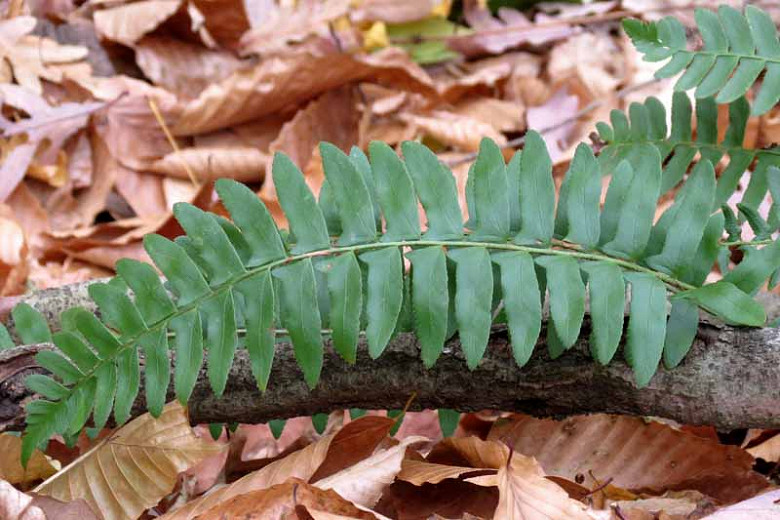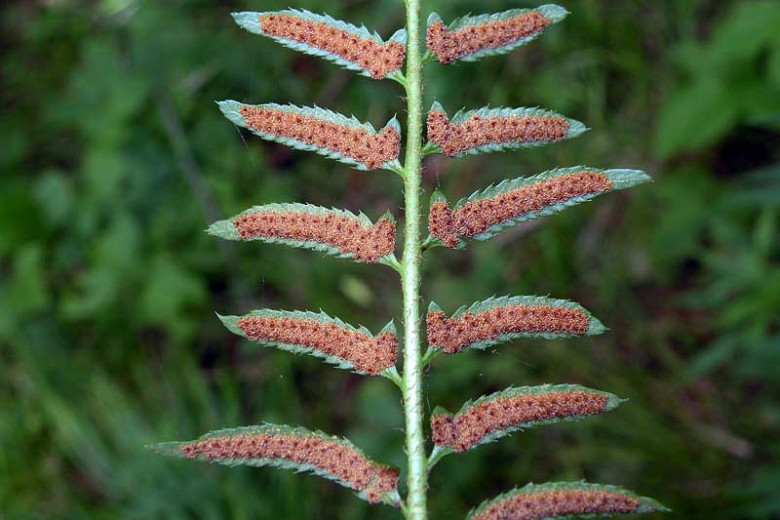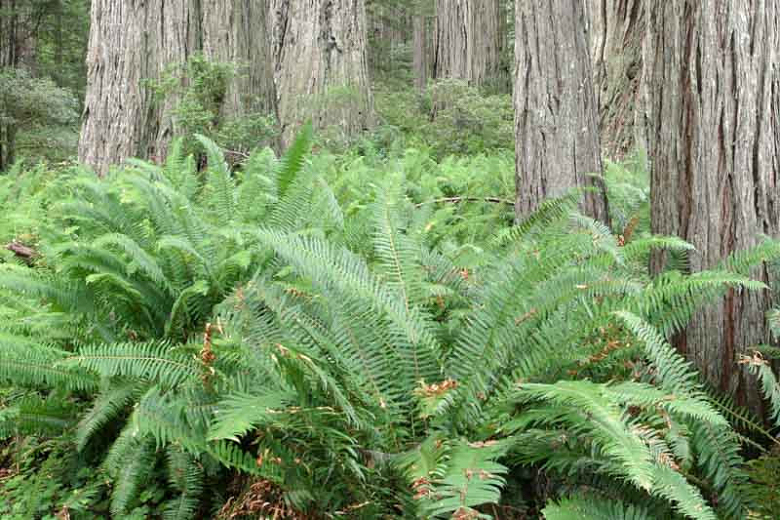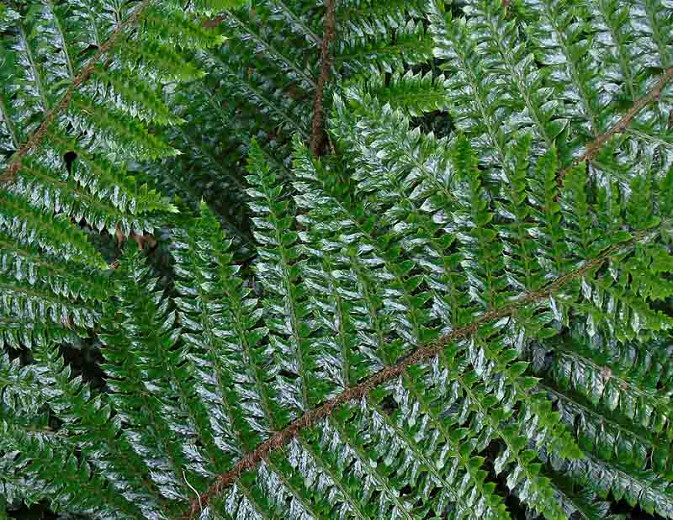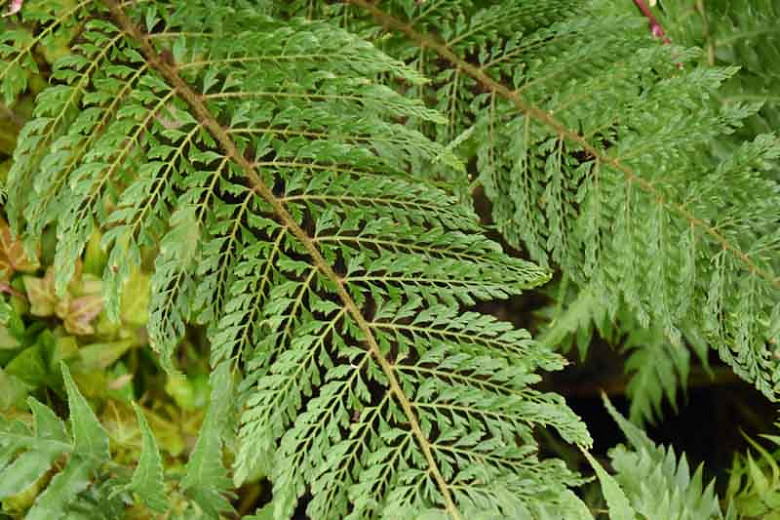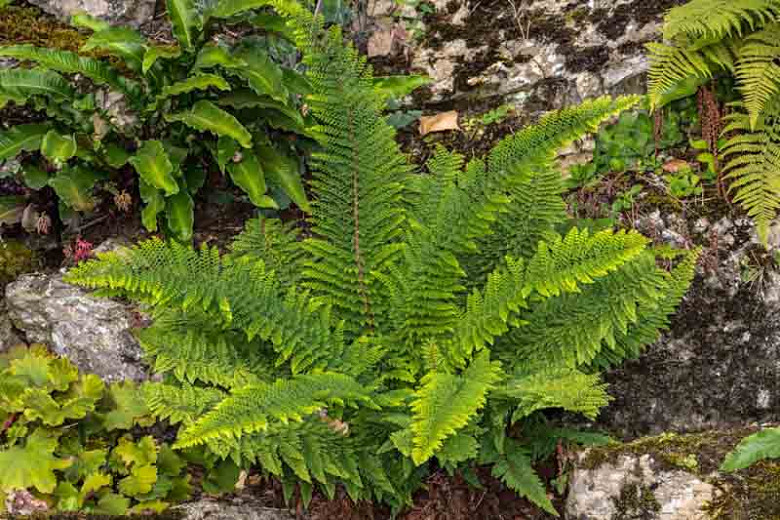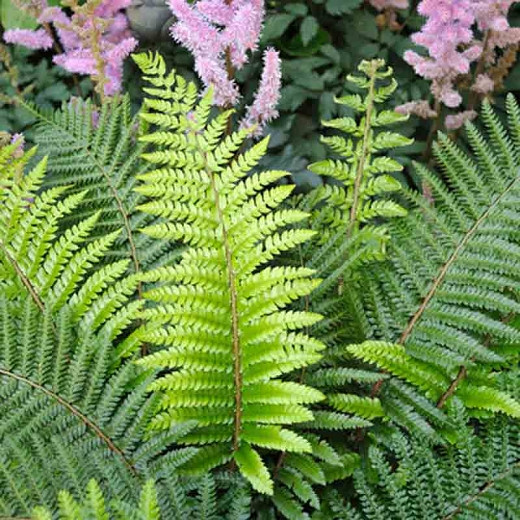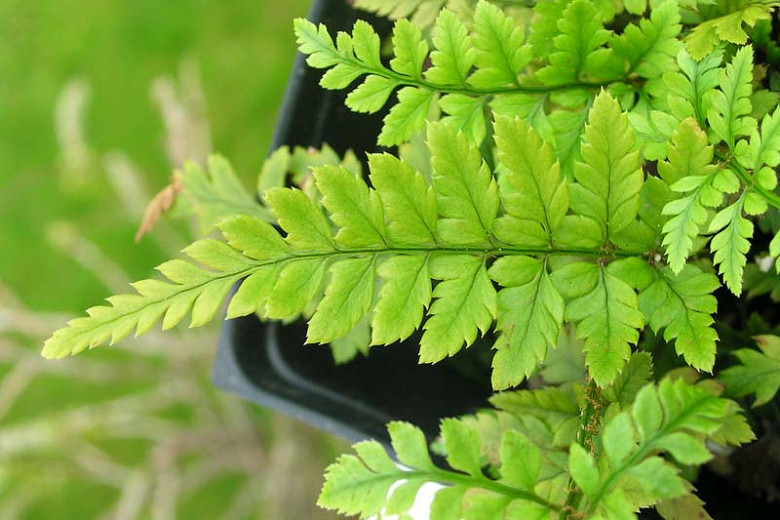Polystichum acrostichoides (Christmas Fern)
Popular and easily maintained, Polystichum acrostichoides (Christmas Fern) is a robust, clump-forming, evergreen fern forming a fountain of leathery, lance-shaped, rich dark green fronds adorned with small, holly-like pinnae. They remain lush and fresh-looking throughout the season. In spring, tightly coiled fiddleheads emerge silvery green from a slowly creeping rhizome. On mature plants, the first fronds that emerge in spring are generally fertile and are held stiffly upright. Sori appear on the undersides of the pinnae only on the upper third of the fertile frond. The fertile fronds are followed by shorter, sterile fronds, which tend to be more loosely arching in form. Gracing shaded gardens and woodlands, Christmas fern provides four seasons of interest and is effective as a ground cover or as a companion to other shade-loving ferns, perennials, and wildflowers. Adaptable and dependable, it is not fussy about soil types and conditions, making it an accommodating and low-maintenance garden plant.
- Grows up to 1-2 ft. tall and wide (30-60 cm). Under the right conditions, Christmas fern will naturalize by spores, gently expanding its presence in the garden.
- A part shade to full shade lover, it is best grown in organically rich, dry to medium moisture, well-drained soils. Will tolerate a fair amount of sun if adequate moisture is provided. Christmas fern is remarkably drought tolerant.
- This plant is a great choice for shady beds and borders, underplanting of roses and shrubs, cottage gardens or woodland gardens. A good plant for massing on slopes to help combat soil erosion.
- Rabbit and deer resistant
- Dead or damaged fronds may be removed as necessary.
- Propagate by sowing spores as soon as ripe, division of rhizomes in spring.
- Native to eastern North America
Requirements
| Hardiness | 3 – 8 |
|---|---|
| Heat Zones | 1 – 8 |
| Climate Zones | 1, 1A, 1B, 2, 2A, 2B, 3, 3A, 3B, 4, 5, 6, 7, 8, 9, 14, 15, 16, 17, 18, 19, 20, 21, 22, 23, 24 |
| Plant Type | Ferns |
| Plant Family | Polystichum – Ferns |
| Exposure | Partial Sun, Shade |
| Season of Interest | Spring (Early,Mid,Late)Summer (Early,Mid,Late)FallWinter |
| Height | 1' – 2' (30cm – 60cm) |
| Spread | 1' – 2' (30cm – 60cm) |
| Spacing | 12″ – 24″ (30cm – 60cm) |
| Water Needs | Average |
| Maintenance | Low |
| Soil Type | Chalk, Clay, Loam, Sand |
| Soil pH | Acid, Alkaline, Neutral |
| Soil Drainage | Well-Drained |
| Characteristics | Showy, Evergreen |
| Native Plants | United States, Midwest, Illinois, Indiana, Iowa, Kansas, Michigan, Minnesota, Missouri, Ohio, Wisconsin, Northeast, Connecticut, Delaware, Maine, Massachusetts, Maryland, New Hampshire, New Jersey, New York, Pennsylvania, Rhode Island, Vermont, Southeast, Alabama, Arkansas, Florida, Georgia, Kentucky, Louisiana, Mississippi, North Carolina, South Carolina, Tennessee, Virginia, West Virginia, Southwest, Oklahoma, Texas |
| Tolerance | Deer, Drought, Rabbit, Dry Soil, Rocky Soil |
| Garden Uses | Banks and Slopes, Beds and Borders, Ground Covers, Underplanting Roses and Shrubs |
| Garden Styles | Prairie and Meadow |
